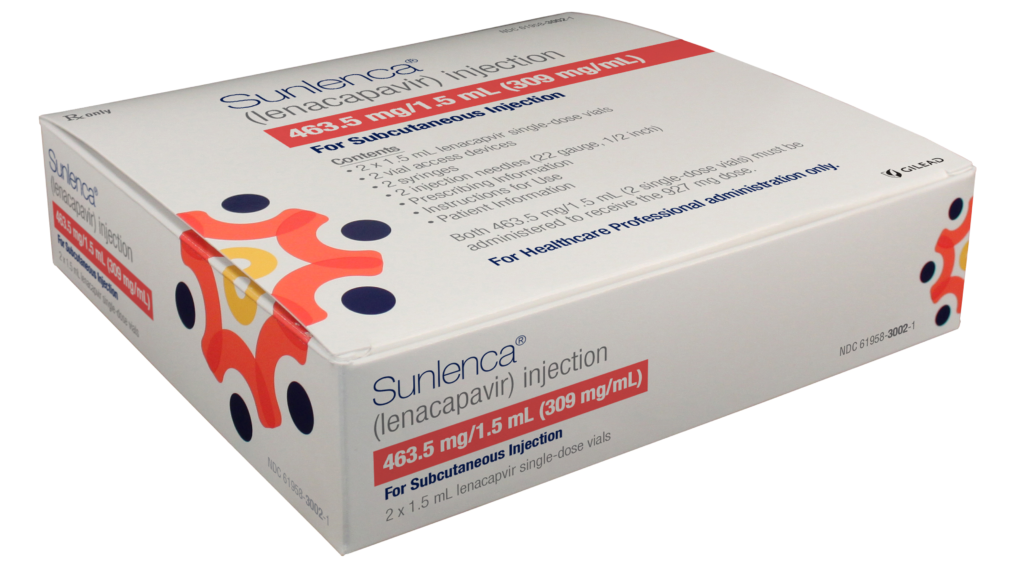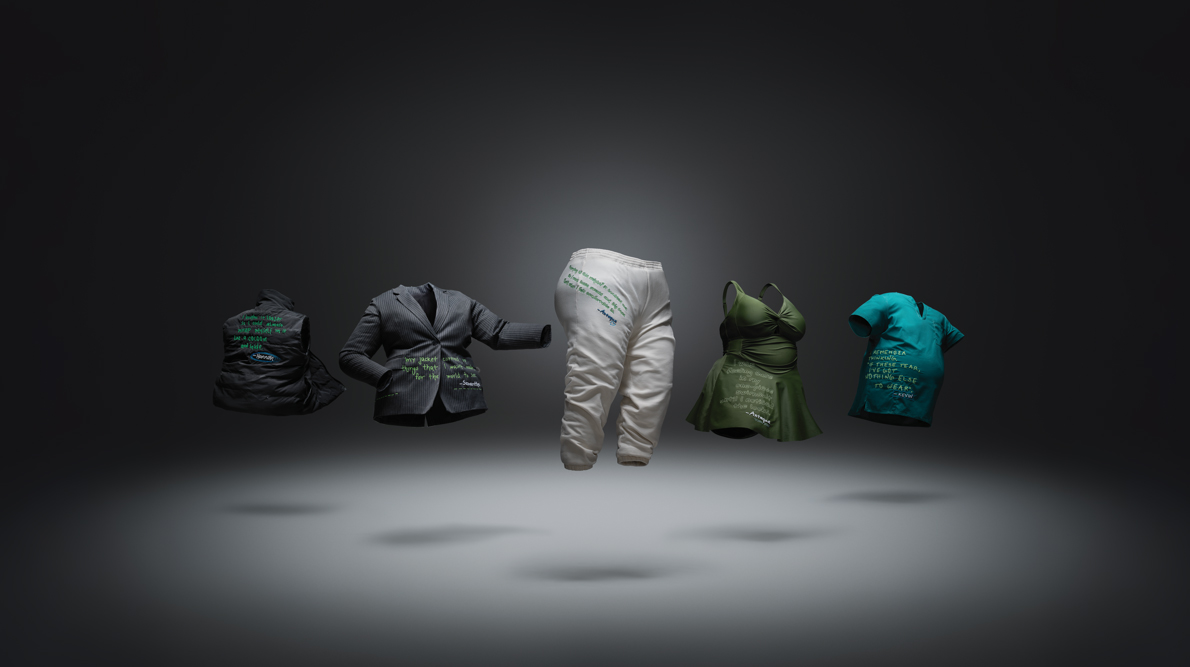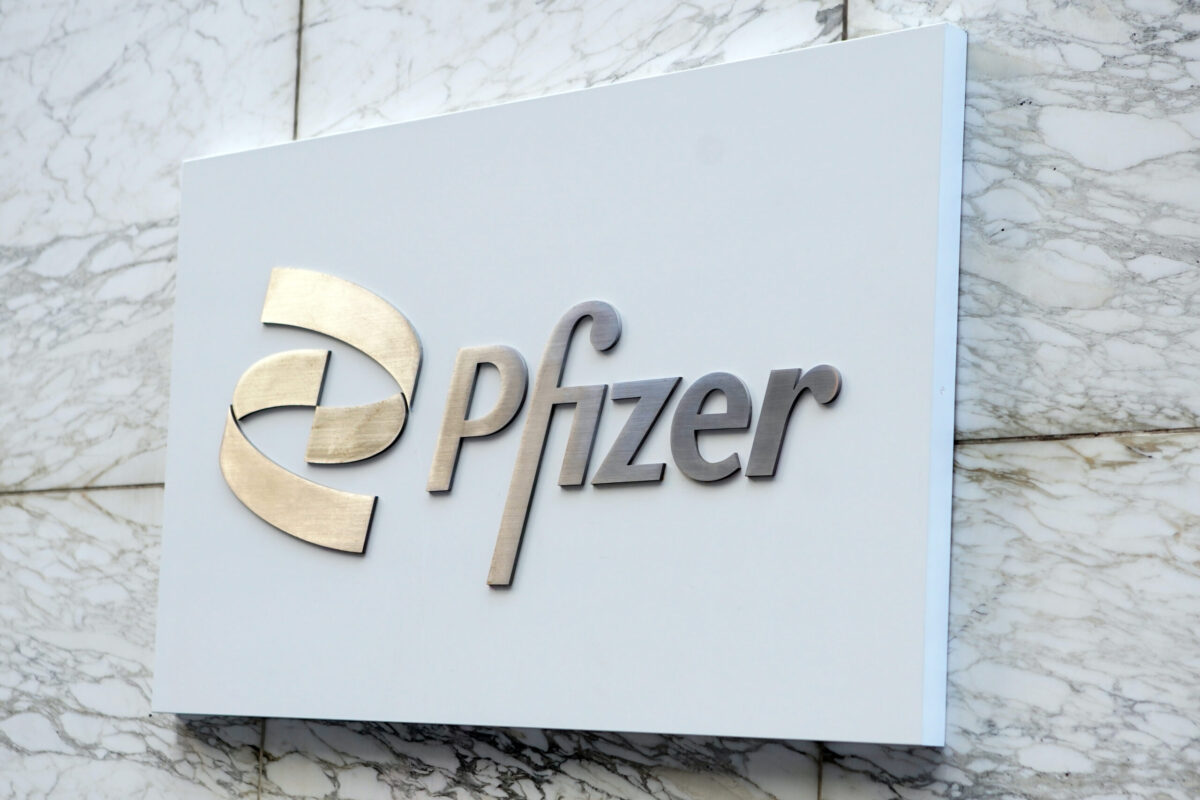Gilead Sciences, Inc. recently announced in a press release that Sunlenca (lenacapavir) received approval from the US Food and Drug Administration (FDA) for use as a twice-yearly treatment option for people living with multi-drug resistant HIV (human immunodeficiency virus).
The first and only approved treatment of its kind, Sunlenca is a capsid inhibitor-based treatment that may be used in combination with other antiretrovirals (ARV) in heavily treatment-experienced adults. Its mechanism of action differs from currently approved antivirals and has thus far shown no cross-resistance in vitro to other drug classes.
Over time, HIV attacks the immune system, progressing from acute infection to chronic HIV infection where those infected are minimally symptomatic. About two to four weeks after initial infection, symptoms are flu-like (e.g., fever, swollen lymph nodes, rashes, fatigue, chills). These symptoms can last a few days or several weeks, but many have no symptoms at all. Chronic infection can last up to ten years but may evolve into AIDS (acquired immunodeficiency syndrome) much earlier.
AIDS is the most severe stage of infection, and people can become seriously ill easily due to opportunistic infections and their damaged immune systems. The survival rate is about three years. Although there is no effective (disease-ending) cure, with proper medical intervention, people with HIV can live long, healthy lives, and keep their partners safe, too. The only way to know for certain if you have been infected is to get tested in person or with a self-test.
The approval of Sunlenca fills an unmet need for people with complex treatment histories and multi-drug resistance. Additionally, physicians have a treatment for patients who otherwise have limited options — about two percent of people receiving HIV treatment are unable to maintain virus suppression due to treatment resistance, intolerance, or other safety concerns. This situation increases chances of treatment failure and highlights the need for novel treatments with new mechanisms of action and efficacy against resistant HIV.
Sunlenca received New Drug Application (NDA) approval based on the results of the CAPELLA trial, in which it demonstrated high rates of sustained virological suppression. Additionally, it was approved as a medication with FDA Breakthrough Therapy Designation, so its development and review will be expedited as it offers substantial benefits over existing therapies.
XTALKS WEBINAR: Longitudinal Patient Data — Addressing Common Questions & Unlocking the Value of Real-World Data
Live and On-Demand: Tuesday, February 7, 2023, at 12pm JST/Japan (8:30am IST/India)
Register for this free webinar to learn about the value of real-world data as a critical business tool to guide brand strategy and find the right patients for best outcomes.
The CAPELLA Clinical Trial Evaluated the Antiviral Activity of Sunlenca
The CAPELLA trial was a Phase II/III, double-blinded, placebo-controlled, global multicenter study including a total of 72 participants with multi-drug resistant HIV-1 who are heavily treatment experienced and have a detectable viral load.
In the study, the antiviral activity of Sunlenca was evaluated in combination with an optimized background regimen. Thirty-six participants were randomly allocated to receive either oral lenacapavir or placebo in a 2:1 ratio for 14 days, while continuing their failing regimen (functional monotherapy). The primary endpoint was the proportion of participants achieving ≥0.5 log10 copies/mL reduction in HIV-1 RNA from baseline at the end of the functional monotherapy period. A total of 88 percent (n=21/24) participants who received lenacapavir achieved this endpoint, compared to 17 percent (n=2/12) of participants receiving placebo. After the 14-day monotherapy, participants began treatment with open-label lenacapavir and an optimized background regimen.
An additional 36 participants were enrolled in a separate treatment cohort and received open-label lenacapavir and optimized background regimen on the first day of treatment. Both cohorts are part of this ongoing maintenance period of the study, in which the efficacy and safety of subcutaneous lenacapavir administration every six months in combination with an optimized background regimen is being evaluated. The primary results of the CAPELLA study were published in the New England Journal of Medicine in May 2022.
Cost of Sunlenca
Sunlenca has the potential to be the preferred treatment option due to its potency and flexible dosing frequency and administration methods. It has been reported that both injections and tablets of Sunlenca will cost approximately $42,250 in the first year of treatment, and $39,000 annually in following years.
Gilead is founding future HIV therapies on the success of Sunlenca, with a goal of providing long-lasting treatment options that will improve patient outcomes and potentially reduce the burden of care. Presently, Sunlenca’s efficacy and safety is being examined in multiple ongoing clinical trials as an option for HIV prevention, for individuals who would benefit from PrEP (pre-exposure prophylaxis).
Currently, Sunlenca is only approved in the United States, United Kingdom, Canada and the European Union. More regulatory filings and decisions are anticipated for 2023.












Join or login to leave a comment
JOIN LOGIN